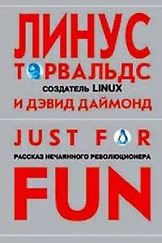So if a typical CD costs $10 and contains two singles a consumer wants, it may make more sense for him to purchase those singles separately -- along with others he wants -- off MP3 for $1.50 apiece. No longer is the buyer trapped in a despotic situation, living by the greed-inspired rules of the music company, which wants to give up just the bite-sized pieces that it chooses to give up. There's a good reason why the music industry is scared to death of MP3 and its sister technologies, Napster and Gnutella. The price of water got so high that it became profitable for somebody to devise a new method of bringing it in from somewhere else.
But this is an industry with a history of trying to control consumers -- if not by what music it chooses to release, then by copyright and technology. This is the industry that tripped allover itself in the 1960s, trying to keep consumers from copying music onto tapes when that technology entered the market. Because the industry felt tapes were the perfect medium for people to disobey copyright laws, it argued for ways to protect its copyrights. This was a bad excuse. The industry was taking the moral high ground and pleading copyright when it was simply trying to maintain control of its niche franchise. The fact is, tapes never hurt the music industry. Sure, people copied music for their own use, but that only meant that people actually bought more LPs from which to copy. Duh. A few decades later, when CDs came out, the players were built so that you couldn't copy your tape perfectly. Paranoia strikes again. Next came digital tapes. They involved a different sampling rate from CDs-48 kilohertz versus 44.1-to prevent users from copying their CDs onto digital tape. Again the industry tried to screw over the customer to get control. But in the case of digital tapes, the market never quite hit. It was a bit like fooling with Mother Nature.
By trying to control each successive technology, the music industry only helps inspire people to devise new ways around it. Are they ever going to get it?
That brings us, inevitably, to DVDs. This time the entertainment industry delivered much better sound and video than VHS tapes, plus a smaller format and greater ease-of-use. But they added encryption to prevent copying. And to add insult to injury, they added geographic area codes. The DVD you bought at the San Francisco airport wouldn't play in Europe. It made a perverse sense to the industry: Hey you guys, we can sell movies at a higher price in Europe! So let's make sure that Europeans can't buy movies from the United States.
Could the entertainment industry not have predicted the obvious? That the price of water would get so high that somebody would devise a new method of piping it in from somewhere else?
Yes,while the industry was greedily trying to control people through technology, the DVD encryption was cracked-not even by people who wanted to copy DVDs but by people who simply wanted to view them under Linux. These are folks who actually wanted to buy DVDs, but they couldn't; the discs would have been useless on their equipment. The industry's moves to protect its fiefdom backfired: It simply prevented the market from expanding, and created the incentive for the cracking of the DVD encryption. Once again, the short-term strategy turned out to be the wrong thing to do.
The entertainment industry is just one example. The same thing has been happening for years in software. That's why Microsoft's strategy of bundling software is ultimately doomed to fail. Open source products, on the other hand, cannot possibly be used in a despotic manner because they're free. If somebody tried to bundle things with Linux, somebody else could just unbundle it and sell it the way people really want it.
It's doubly futile to attempt to control people through technology. In the end, it always not only hurts the company but also hinders the acceptance of the technology. A recent example is Java, which has lost a lot of the appeal it originally had. By trying to control the Java environment, Sun Microsystems basically lost it. Java is still doing reasonably well, but it surely hasn't lived up to its potential.
Sun wasn't trying to make money on Java itself, but the company saw the programming language as a way to make its computer more unique to users and get us out of Microsoft's grip -- and sell more Sun hardware, by the way. But while they weren't really trying to make money on Java, they did feel that they had to keep control of it as a phenomenon and as a microbe. All of their licensing terms came with a lot of extra baggage just for this control.
Good product. But the problem was that they were trying too hard to screw over Microsoft. They were motivated by fear, loathing, and hate, which is sort of a mid-to-late 1990s approach to business. (Think of the Grateful Dead lyric: "Ain't no time to hate.") And because they were so hateful of Microsoft and so afraid, they made all the wrong licensing decisions. They made it difficult for everybody, even their partners, to use the product. That's why companies like Hewlett Packard and IBM all eventually decided to make their own Java implementations. They just said "Screw Sun."
Sun tried to get Java standardized through two different standardization bodies, and each time they basically pulled out because of the control issues.On the one hand, Sun wanted to standardize the language. But at the same time they didn't want to lose control. So the standardization boards basically said, "Hey, this is not just about you." And as a result, Sun just flaked out. It's an example of a company trying to control technology in ways that make no sense for the people who actually use the technology. And it's always going to fail for the company. It also makes the technology itself fail -- or take longer to be accepted.
Contrast that with the If-you-love-something-set-it-free strategy taken by Palm Computing. The folks at Palm made their development environment open, and also opened up their platform, not only to vendors but to individuals who would want to write programs for the platform. They opened up their APIs and made it easy to get their development tools for free. What this did was create a cottage industry around the Palm Pilot. It made the Palm phenomenon more than just one company struggling in a new market. So now you have companies selling games that work on Palm Pilots, and more advanced calendar programs than what Palm itself offers. Now the consumer can choose what he or she wants and everybody benefits, particularly Palm, which enjoys a larger market as a result of opening itself up.
Handspring is doing the same thing with its device, the Visor. It's a Palm competitor that uses the Palm operating system, and the company takes openness a step further by allowing hardware plug-ins like GPS receivers and mobile phone attachments. Like Palm, Handspring is creating a community of companies to support a new platform.
What Sun could have done is allow anybody to do their own Java -- no strings attached -- while wagering that they themselves could do a better job. That's the sign of a company that isn't blinded by greed or by fear of competition. It's the sign of a company that believes in itself. And doesn't have time to hate.
Is there anything more obnoxious than business prognosticators? Those self-important types who pretend to know where the insane technology amusement ride will take us? I guess they serve a good function. They populate the panel discussions and keynote speeches of the indistinguishable technology conferences that seem to crop up like unpleasant, inedible mushrooms in your flower bed. People hoping to cash in on technology trends spend thousands of dollars to hear them speak at technology conferences. It keeps an army of hotel workers and food handlers and bartenders honestly employed, so I suppose they serve a purpose.
Читать дальше












